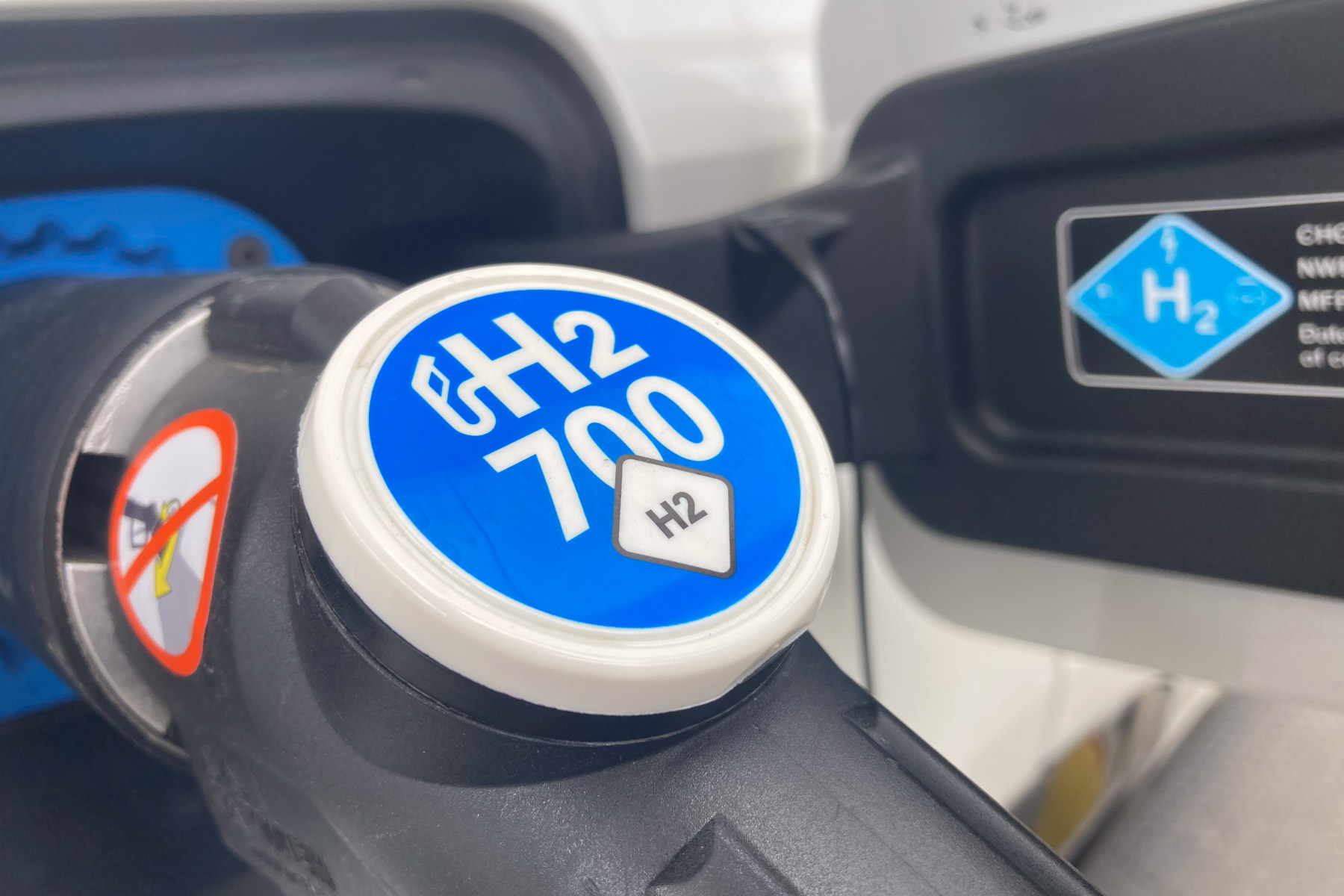The 5,621 FCEVs sold in the first half of the year were not only passenger cars, but also commercial vehicles. This is particularly relevant in the world’s largest FCEV market – China. According to SNE ResearchA total of 2,501 fuel cell vehicles were sold in China between January and June. Of these, 2,478 units were commercial vehicles such as buses or trucks. This leaves only 23 units for the passenger car sector. This is the Haima 7X-H, the fuel cell version of the Haima 7X, a 4.82 meter long combustion engine van.
While FCEV sales in China only fell by 16.5 percent, the second-largest market, South Korea, suffered a decline of 41.8 percent. While China and South Korea were still very close to each other after the first half of 2023 (2,996 and 2,992 sales respectively), South Korea only had 1,742 new FCEVs after six months of this year. SNE Research attributes this to sluggish sales of the Hyundai Nexo on the home market – in addition to the fuel cell SUV, the FC bus Elec City is also on Hyundai’s balance sheet.
| country | 1st half of 2023 | 1st half of 2024 | delta | Market shares 2023 | Market shares 2024 |
|---|---|---|---|---|---|
| China | 2,996 | 2,501 | -16.5% | 35.1% | 44.5% |
| South Korea | 2,992 | 1,742 | -41.8% | 35.1% | 31.0% |
| Europet | 489 | 594 | 21.5% | 5.7% | 10.6% |
| USA | 1,825 | 322 | -82.4% | 21.4% | 5.7% |
| Japan | 202 | 440 | 117.8% | 2.4% | 7.8% |
| Other | 20 | 22 | 10.0% | 0.2% | 0.4% |
| In total | 8,524 | 5,621 | -34.1% | 100% | 100% |
Source: SNE Research
In Japan, FCEV sales have more than doubled compared to last year. With 440 units, Japan is now even ahead of the USA. The rest of the world plays no significant role with 22 FCEVs.
With the exception of the Corona year 2020, sales of hydrogen vehicles rose continuously until 2022. At this (provisional) peak, there were 20,704 vehicles worldwide. By 2023, sales had already fallen by 20.7 percent to 16,413 vehicles. The first half of 2024 represents a further decline of 34.1 percent.
“The fluctuating price of hydrogen, rising charging costs and lack of infrastructure – all of these make it difficult for consumers to conveniently use hydrogen vehicles and are considered the main reasons for the decline in the FCEV market,” writes SNE Research, referring to the South Korean market. “Contrary to the roadmap proposed by the government, the penetration of hydrogen vehicles has slowed down and the plans for the introduction of new models are also not encouraging.”
www.sneresearch.com

